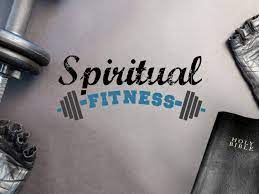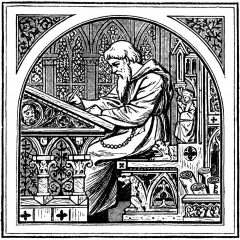
At the start of this year I put down as one of my New Year resolutions to be more active with the blog not for commercial success or even for critical acclaim, but for my own sense of well-being and spiritual contentment.
Below is an extract from a sermon I was privileged to give last Sunday at my local Methodist Church on the subject of our own Spiritual Fitness and with the capacity to heal those who God places before us.
The full service from 04th February including the sermon can be found by clicking on the following link https://www.youtube.com/channel/UClkg5FVXeppDHGFXvg_3LIQ
Image Credit: Freedom Church
The readings were taken from Isaiah 40:21-31, 1 Corinthians 9: 16-23 and Mark 1: 29-39
Have you not known? Have you not heard? The opening lines from Isaiah 40 v 21. Isaiah chapter 40 is the start of what we commonly acknowledge as second Isaiah. This is the period formed against the backdrop of the Babylonian exile when the Jewish elite were removed from Jerusalem and where Cyrus, King of Persia around 545 BCE was moving against the Babylonians and who would eventually allow the exiles to return.
The writings of the Prophet in chapters 40-55 emphasize entirely the spirit of hope and renewal despite their situation, a situation which was foreseen in Isaiah 1 and also by that other great Prophet Jeremiah, firmly rooted in the belief that God is still in control and will redeem his people, Israel from the consequences of their iniquity.
It is a belief which still holds true today if we want it to. Vv 28-31 again demonstrate how the Lord is always present in time and space even though we may not always realise it and is the source of restoring our vigour for life and of our renewal. That those who wait patiently for the Lord will eventually be granted salvation and where required a reversal of fortune.
The first time I heard that passage read wasn’t in Church but in a movie, Chariots of Fire, the story of Harold Abrahams and Eric Liddell, two British athletes who competed in the Paris Olympics of 1924. Eric Liddle became famous for his refusal to run on the sabbath, which is why he switched from his favoured 100m event to the 400m where he won Gold. He also withdrew from the 4 x 100m and 4 x 400m relay races for the same reason.
Eric Liddell died in 1945 in a Japanese internment camp in occupied China where he had served as a Christian missionary. His grave remained undiscovered until 1989 and in 1991 the University of Edinburgh erected a memorial headstone, at the former camp site in Weifang. about six hours’ drive from Beijing. The simple inscription taken from 40:31: “They shall mount up with wings as eagles; they shall run and not be weary.”
Ironically, this year a century on from those exploits, the Olympics once again are being held in Paris, so doubtless we will hear more of this extraordinary man and his inspirational story.
Chariots of Fire only told part of the story though. In 2016 a movie called “On Wings of Eagles” was released starring Joseph Fiennes, which told the story of Liddell’s life after he returned to China in 1925, his imprisonment by the Japanese and his eventual passing. It is well worth downloading or buying the Dvd if you want to know more.
I was thinking about this when reading our epistle text and sometimes when preparing sermons or reflections, I look at what is said before and after the chosen passage to understand better the context in which it was written. In 1 Corinthians 9, we began at v.19 and ended with v.23 where Paul declared he was prepared to become all things to all men, in order to spread the Gospel of Christ. Regardless of what others may think, Paul has been given a commission, to use his oratorical skills honed by his Pharisee background to proclaim the Gospel to all on the basis of Christ’s unconditional grace and love to all who wish to receive it, not by forcing converts to accept alien religious practices.
Perhaps we should have included vv 24-27, because here Paul says the effort required to bring converts to Christ is similar to that of an athlete setting out to win a race. Being a successful athlete requires discipline and self-control as well as skill. Many compete but only one can be declared the winner, so it is important in Paul’s eyes that the Christian wins his or her race, to run for God’s glory in spreading his Gospel far and wide.
Eric Liddell was a devout Christian in every sense of the word. He recognised the talent God had given him and ran not for personal glory but for God’s, but always with a specific goal in mind. He lived his life in the service of others none more so than when was in the internment camp, he bore his enemies no ill will, he prayed for them and his fellow prisoners always displaying openly the love for others as Jesus commanded us to.
Displaying love for others is something that is within our gift not only as Christians but also as human beings. So much of our world today is full of greed and violence, where the strong exploit the weak that at times we can be forgiven for thinking that nothing but evil and selfishness actually exists.
But we know that actually, there are many acts of love and kindness that happen day in and day out. They just get smothered by all the bad news often with the connivance of a media that only occasionally deems such positive stories newsworthy because if does not fit their own agenda.
Our Gospel passage from Mark describes part of a typical day in Jesus’ life, healing and ministering to the sick and afflicted. But the one thing Jesus wanted to avoid was to be seen as some miracle-worker. Yes, his authority came from God, yes, he had knowledge of the real meaning of the scriptures and was able to teach and heal to all who sought his help. But he did not seek fame or adulation, he was able to avoid the temptation of believing in his own publicity. He saw it as a departure from the true purpose of his ministry and his mission to fulfil the scriptures which foretold of his death and resurrection.
I wonder how many of us would have reacted in the same way? Are we not tempted sometimes to let praise and perhaps adulation go to our heads, that we lose focus on what we are really here for or worse, try to avoid it?
The same discipline and self-control Eric Liddell showed in his athletic career was guided by a spiritual discipline that exists within all of us who profess to be followers of Christ, but for which does not always manifest itself when it should. When it comes to gift of healing, all of us have it within us to bring peace and comfort to those who find themselves in distress yet sometimes, we are fearful about the reaction we might get. That our motives are misunderstood. How many times have we seen or heard accounts especially in the media where this has happened?
Earlier this week in a chance conversation with our Church Organist, Fred Smith, who told me of an encounter he had where he was able to bring comfort and healing to someone in distress. Fred kindly agreed to share his experience with us because it was something which needed to be shared, for it illustrates all we have been taught in providing loving service to those God has placed before us.
Encounters such as Fred’s happen every day but very few of us ever get to hear about them. It is typical of the human condition that very few remember what good we may have done, but everyone will always remember any mistakes we make. Perhaps that’s a good thing, for it keeps us humble in the eyes of those we encounter.
We cannot all have that same spiritual discipline that guided Eric Liddell. He would have understood the words of Isaiah, that the Lord is always present in time and space and IS the source of restoration of our vigour for life and of our renewal.
Yes, winning a race is important if you are a competitor, but sometimes when you are helping to bring Christ into people’s lives, it might be better perhaps to be a Mo Farrah rather than a Usain Bolt.
Each of us has the power to heal in our own unique way, because we actually do have our own spiritual discipline that helps guide us in our encounters in life whilst acknowledging the reality of the world that exists around us. How we use it is the question we need to ask.
As we begin another week in the life of our church and the wider community we serve, let us be prepared to undertake our own spiritual fitness test, to ask ourselves collectively and as individuals, how we can best be able to respond to Jesus’ commandments to love our God and to love our Neighbour, for this is truly the measure our ability to show ourselves worthy of his grace and love.
AMEN
